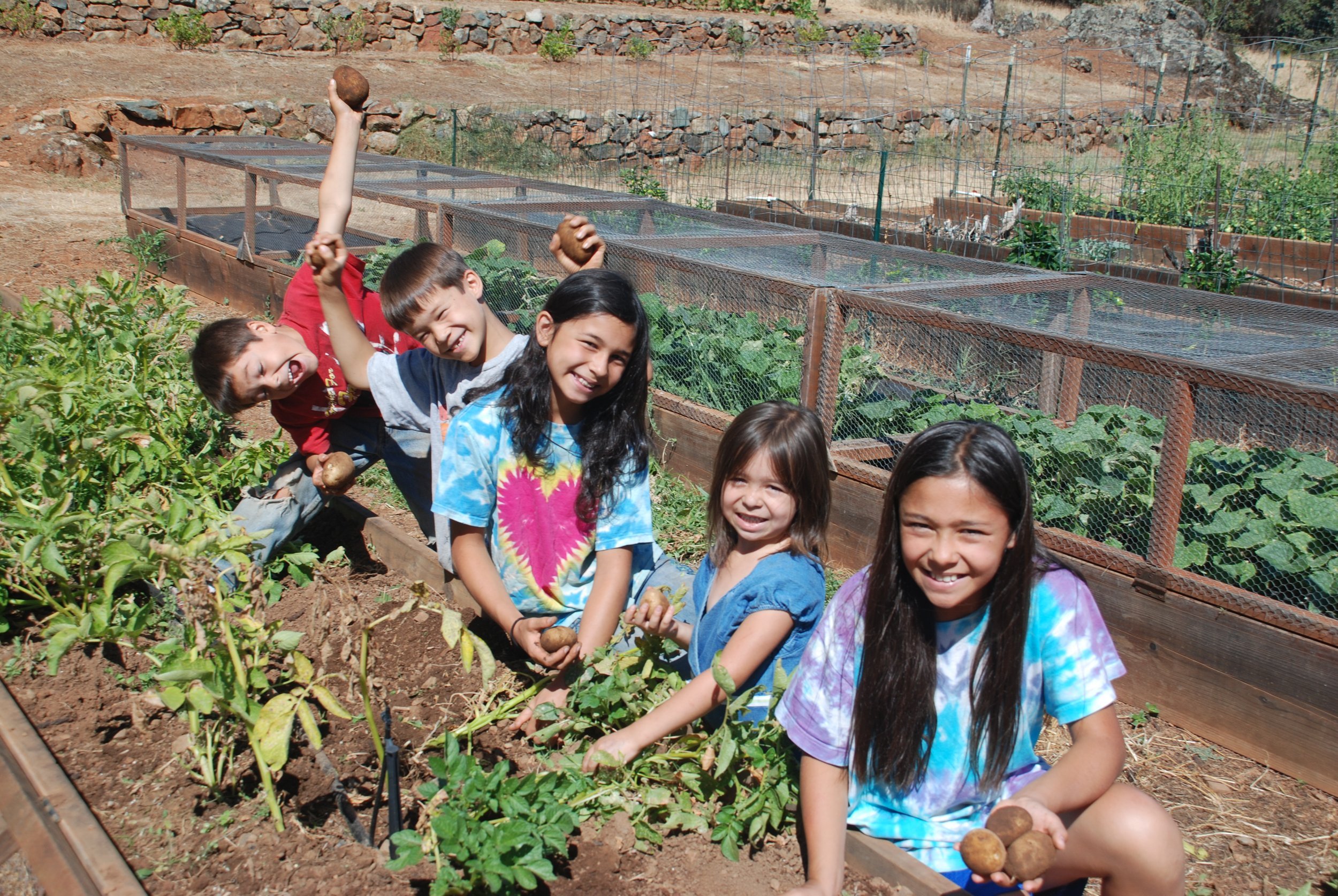Homesteading vs. Farming
Mankind has lived a certain way for about 5,000 years, but in the last 150 years everything has changed. Throughout history, the small family farm was a common career for homesteading families. Many families made their living from vegetable gardens, fruit trees, milking cows, pigs, chickens, and various other small family enterprises. Then the Industrial Revolution pulled people away from rural landscapes into big cities. With concern for the large swaths of land that were being seized by big banks, the first Catholic Land Movement taught families how to farm the land amid economic collapse. Many leading figures of this movement had much to say about homesteading and farming. Fr. Vincent McNabb, author of The Church and the Land, focused on the integrity of the family unit: “The home is the social defense of liberty and the homestead is the economic defense of the home.” G. K. Chesterton and Hilaire Belloc described the homestead-farm as the building block of a harmonious society in which property was privately owned and served as the means of one’s own livelihood. Evidently, these thought leaders envisioned a lifestyle where homesteading and farming occurred together and the farm provided the primary income of the homesteading family.
The “Little House on the Prairie” dream is possible for everyone.
Now however, in our modern-day situation, we believe that homesteading and farming are two independent concepts that can be lived together or separately. Families can farm but that doesn’t mean they’re homesteading—and families can homestead but that doesn’t mean they’re farming. Farming is the growing of produce and/or the raising of livestock, whether for personal consumption or for sale as goods. On the other hand, homesteading can be described as a wholesome lifestyle that prioritizes the home and the family, while living in a natural way that is connected to the earth. Therefore, the “Little House on the Prairie” dream is possible for everyone because a homesteading lifestyle does not require a family to make their living from farming. A simple lifestyle of family prayer, healthy meals, home learning, social interaction, and natural recreation, along with some farm work, is possible while earning a salary from a conventional career. Homesteading includes learning at home for all ages, while getting your kids into the dirt instead of a phone. A wholistic, natural, simple, healthy, sustainable family lifestyle embodies the ideals of a Catholic Family Homestead!
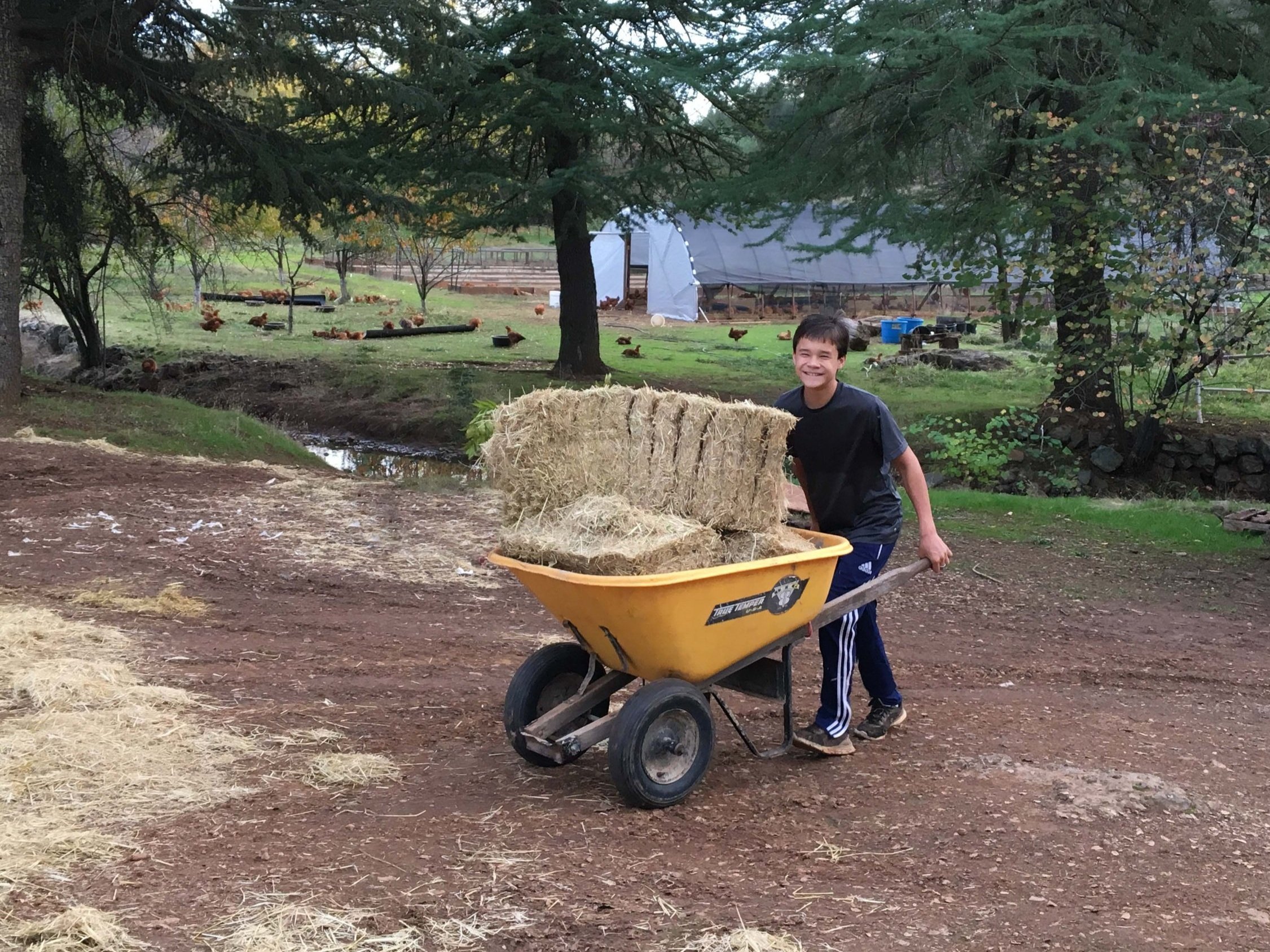
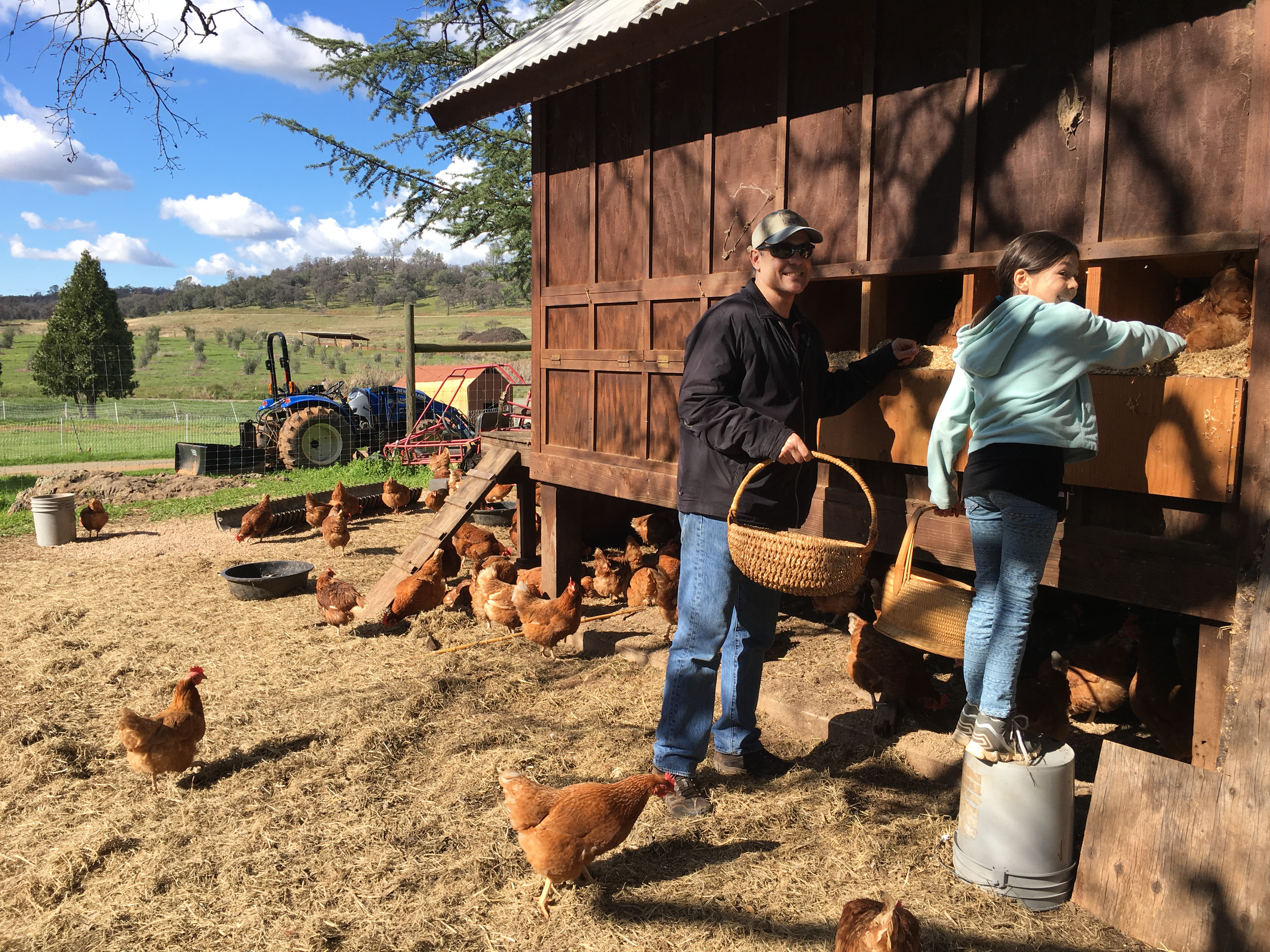
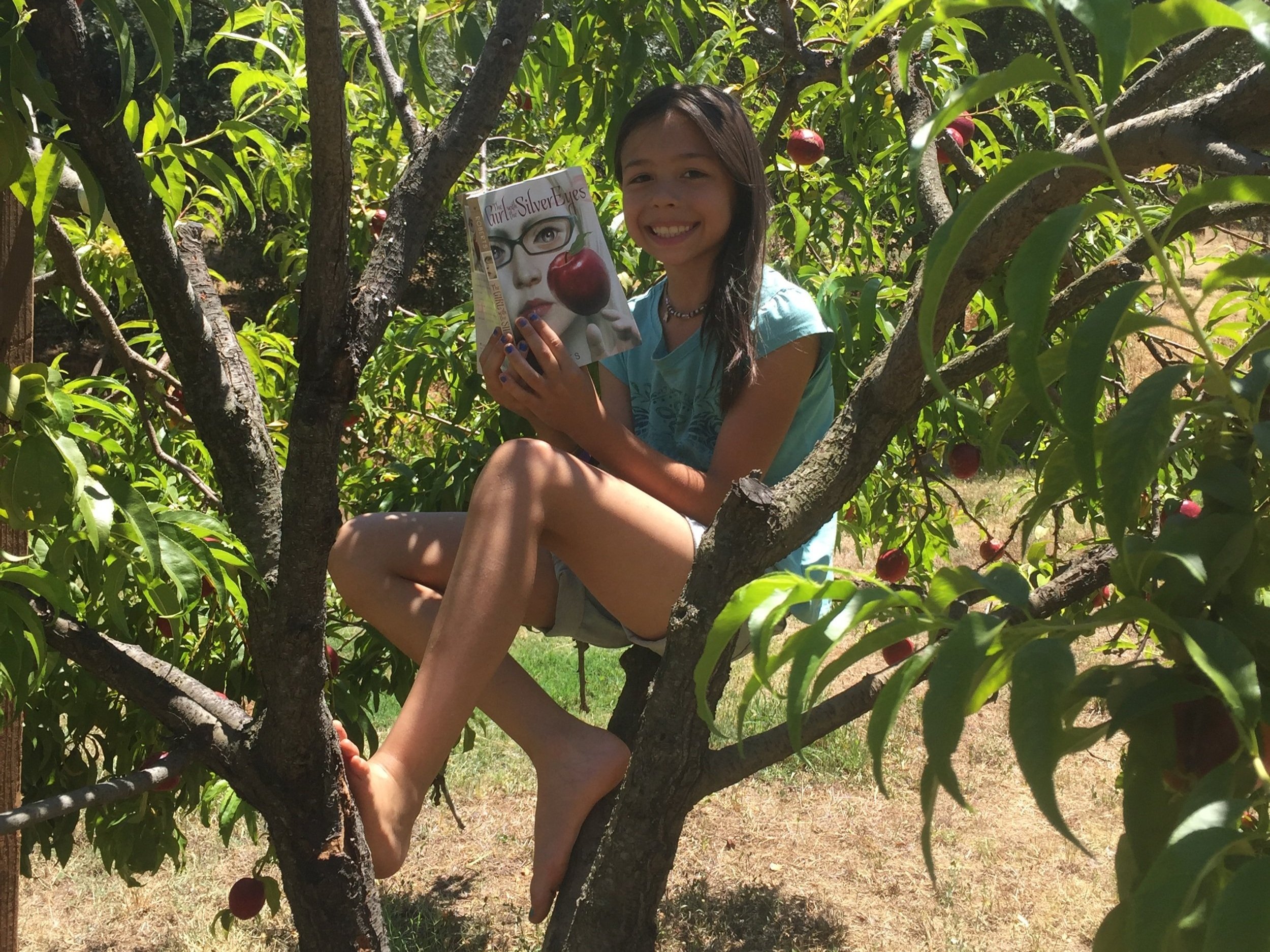
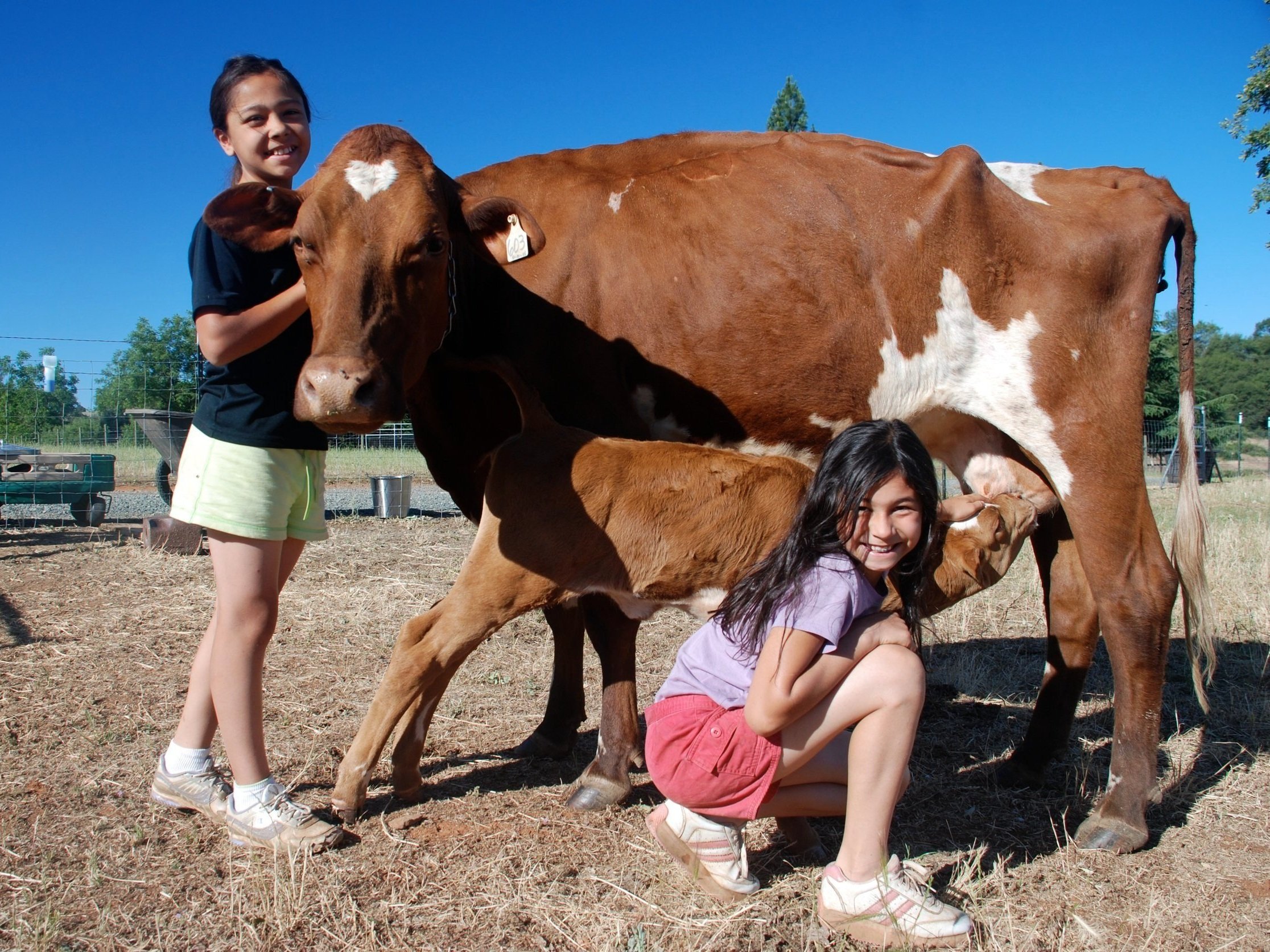

If homesteading is starting to sound a lot less complex, that’s good! Chesterton himself is quoted as saying, “The most extraordinary thing in the world is an ordinary man and an ordinary woman and their ordinary children.” And part of what is so extraordinary about a simple, peaceful, loving family is their resistance to the modern tendency to overcomplicate things, indulge in chaos, and navigate life individualistically.
“The most extraordinary thing in the world is an ordinary man and an ordinary woman and their ordinary children.”
Some of the homesteading neighbors enjoy dinner together at Our Lady’s Ranch.
A great example is Ty, who continues to homestead even though she no longer lives at Our Lady’s Ranch. Instead of cooking with vegetable oils from the grocery store, she uses animal fats like pork lard and beef tallow to prepare healthy meals for her family (and it also serves as a moisturizer!). Animal fats have been used by our ancestors for thousands of years and they are an amazing source of nutrition. Ty also promotes the mental and spiritual development of her toddler through homemade activities and peaceful outdoor nature walks that she plans to continue with all of her future children. And likewise, here at Our Lady’s Ranch, we try to prioritize our family lifestyle in the most fundamental ways, like home-cooking our meals and enjoying them together. As a result, we are filled with gratitude for God’s generosity and the hard work of whoever lovingly prepared the food that day (and we don’t find ourselves eating out too often).
None of these simple activities rely on big business or big government, but that is not only what makes Ty a homesteader. She mainly exhibits a homesteading lifestyle by centering her life in faith and family, and then by adopting natural behaviors that make her life healthier, happier, and holier.
At Our Lady’s Ranch, we enjoy this homesteading lifestyle by maintaining a community garden, egg-laying chickens, and a milking cow that create opportunities for us to bond with common interests and goals. And even though we don’t sell these “hobby farm” food items for a profit, we do enjoy eating the fruits of our labor, while we all save on our monthly food costs.
Over the last twenty years, we have also learned how to efficiently raise livestock and sell it for a profit, thereby accomplishing a farming income. The revenue from our farm pays for our property costs and utilities, making our homestead more affordable. The farming business also creates jobs so that residents here at Our Lady’s Ranch can work on-site (instead of commuting to jobs in the city) and share a common schedule that allows time for community prayer, work, meals, and recreation on a daily basis.
“The Lord God took the man and settled him in the Garden of Eden, to cultivate and care for it.” (Genesis 2:15) It is important for us to be connected to the earth. We derive a portion of fulfillment through this connection for we were made from it. “The Lord God formed man out of the clay of the ground.” (Genesis 2:7) There is a certain wholeness we receive from working in the ground. It is part of a wholesome life. By connecting back to creation, we connect to our Creator, who generates in us a certain peace, a certain fulfillment, an indescribable satisfaction—a wholeness. “My soul finds rest in God alone; my salvation comes from Him.” (Psalm 62:1)
Isaiah introduces our new turkey chicks into their starter home in the greenhouse/brooder.
The chickens are free to roam the pasture during the day and stay safe in a mobile coop at night.
Isaiah conducts repairs on our irrigation system.
Because homesteading promotes working together as a family, there are many times that we are self-reliant. And on these occasions, we enjoy the added benefits of learning new skills at home and reducing some costs. Recently, when we encountered some difficulties with the irrigation system in our community garden, we fixed it ourselves with patience and perseverance.
However, neither homesteading nor farming should mean complete self-reliance, whether as a hobby or as a business. Our staff communicates with a network of breeders, butchers, and distributors who make our work as farmers more feasible. And whenever the opportunity presents itself, we try to share our gifts from God with others as well. Both homesteading and farming utilize teamwork and cooperation, which includes not only the loving relationships we nurture within the family, but also friendly partnerships that we develop with other like-minded stewards of God’s creation.
Isaiah, Zach, and Claire move some pigs to a new pasture.
Keller transports our pork from the butcher to our freezers.
Keller volunteers at a food drive, along with the rest of the gang.
We are wholistic, natural, and sustainable in everything we do around here. Most of the world’s current agricultural practices are industrially based and involve spraying the produce with poison and pumping the animals with growth hormones and antibiotics, all for the sake of hyper-fast growth and mass production. This modern approach to farming generates toxins in our food as opposed to nutrients, while destroying the environment by working with chemicals against the natural order that God created. But sustainable farming by a homesteading family on a small family farm produces food that is packed with nutrition as God originally intended. Also, homegrown food bursts with flavor, and the wholesome satisfaction of growing it ourselves elevates us in thanksgiving for the generosity and wisdom of God. “The Lord has done great things for us, and we are filled with joy.” (Psalm 126:3)
“The Lord has done great things for us, and we are filled with joy.” (Psalm 126:3)
By embracing these core values, anyone can start a homesteading lifestyle. And if you’re interested in farming as well, fear not! There are an increasing number of people like you in the Catholic Land Movement of today, who are teaching one another various farming practices, while sharing resources and insights to help fellow Catholics get started in homesteading and/or farming. Many people around the world are currently building better lives for themselves and their families by initiating a homesteading lifestyle. Stick around to learn more in our next Newsletter about the upcoming Catholic Land Movement conference that’s happening this month!
Blessings & Peace to you,
Mario John Chris
OLR Promotions & Writing
For more info on our Catholic, homesteading-agrarian way of life, click the button below.

